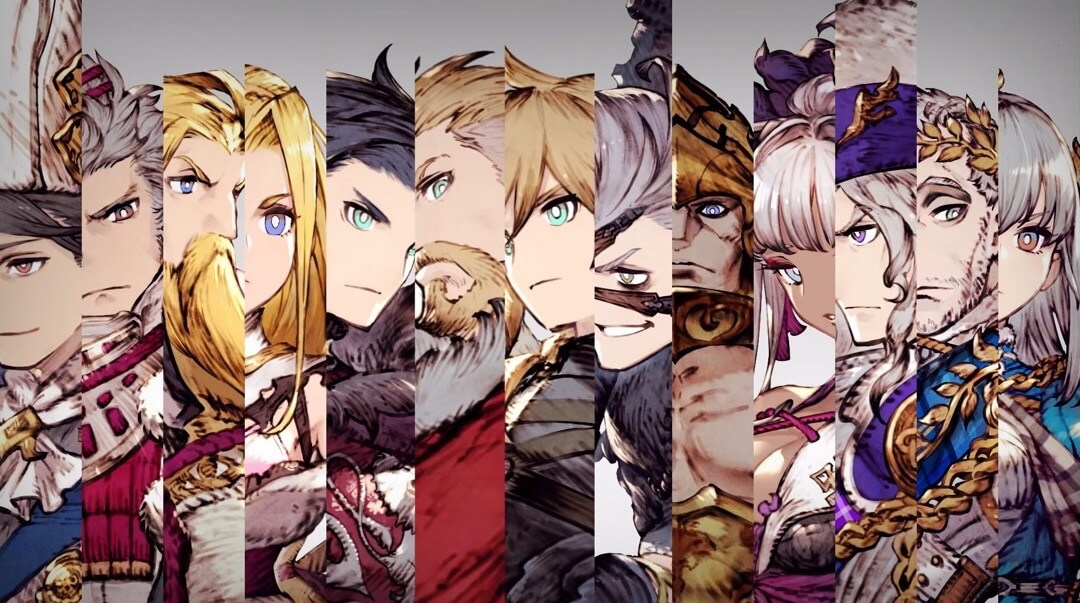Elden Ring classes present the first major decision in the unforgiving game, and now that the game is officially out, you can find that out for yourself. There are quite a few to choose from, so you may be wondering which of the 10 classes best fits your style and skill level. It’s a crucial first choice that will take a lot of effort to change later on, so what do you choose? Can it have a huge impact on the rest of the game? It can be easy to worry too much about this, but it’s all quite a bit simpler than it initially seems.
The good news for anyone looking to dive into Elden Ring is that the game’s starting classes don’t force you play a certain way for the entire game. You’re still free to build your character any number of ways by distributing points into whatever stats you see fit. A starting class will simply provide you with some gear and stat boosts that may benefit you if you’re looking to focus on a specific playstyle.
But if you’re the type who wants to min-max your stats for an optimal PvP build, it’s definitely worth picking a class that will most suit whatever you’re hoping to accomplish. Going with a melee-focused starting class, for instance, may leave a full-blown magic build with a few displaced points by the time you reach your self-imposed level cap. Those few points may not make a significant difference in terms of viability, but in a game where showdowns can come down to the wire, every point in your favor is worth the investment.
With that in mind, we’re going to take a look at each of Elden Ring’s starting classes so you can see which one is going to be best for your preferences. Do note, however, that this guide covers the fundamentals of each of Elden Ring’s starting classes, but it assumes you have a general knowledge of the eight core stats. If not, we’ve got you covered on that, too. And for a whole lot more from Elden Ring, check out our guides hub.
Hero
The Hero is a straightforward melee-focused class that begins the game with high Strength, Endurance, and Vigor stats alongside a one-handed axe and a medium-sized shield for some extra protection in a pinch. This no-frills class should make Dark Souls melee fans feel right at home.
As a Hero, your primary stats will likely continue to be Strength and Vigor. Strength will ensure you can wield large weapons that scale specifically with that stat, while having a high health pool with your increased Vigor stat will assist you with the fact that you’ll spend most of your time in close-quarters encounters.
Bandit
The Bandit doesn’t bring much to the table for the more commonly desired stats, instead offering a lot of points in Arcane. Some high Dexterity is helpful, too, though all of the other stats begin at fairly low levels. That being said, the Bandit begins the game with a dagger and bow and arrows, making it the perfect stealth-based starting class if that’s your thing.
The Arcane stat helps you find more items on defeated foes and has some use in certain sorceries and incantations, but it’s best suited for niche builds and won’t be optimal for more typical playstyles. As such, the Bandit isn’t one of the better starting classes for most players who want to min-max their stats at the end of the game.
Vagabond
The Vagabond is a tried-and-true knight, coming equipped with heavy armor, a straight sword, and a solid shield in preparation for close-quarters showdowns. Its high starting Vigor makes it the tankiest of the starting classes, while the nearly even split between Strength and Dexterity makes it perfect for Quality builds, which bring both stats to at least 40 to specialize equally in all melee weapon types.
The Vagabond’s low Intelligence, Faith, and Mind stats don’t do much to set it on a path for using sorcery or incantations, but they’re not so low that you couldn’t pump a few points in them to make use of spells as a backup option. But if magic is something you’re wanting to use more frequently, you’re much better off with a class that specializes in it.

If you like a tank-like character, the Vagabond is the right pick for you.
Astrologer
The Astrologer is a class that is really well-suited to newcomers who want to have both melee and sorcery options in battle. This magic-based class comes equipped with a staff for casting sorceries and a short sword for some light melee. It boasts large bonuses to Intelligence and Mind that ensure that you’ll hit hard and have plenty of casts at your disposal for ranged combat.
Making the most of the Astrologer will mean spending the majority of your points in Intelligence to keep your magic damage high. Unless you want to rely heavily on a melee weapon as a backup option, you’ll want to pump up your Mind stat, too, so you can increase the number of times you can cast spells. As long as you can keep a little distance between yourself and your enemies, you’ll find a lot to love here.
Warrior
The Warrior is a dual-wielding powerhouse for fans of fast-paced melee combat. It starts off with a high Dexterity stat and two scimitars, so you can dish out some hefty damage at the expense of limited defensive options. This class is wonderful if you’re open to benefiting most from smaller weapons and getting good use out of a bow.
However, bear in mind that your Vigor starts pretty low, and you’ll need to dump a significant amount of runes into your Strength stat if you plan to wear heavier armor. In other words, be sure you’re comfortable with keeping things light and mobile if you’re signing up for this quick-hitting, lower-defense option.
Prisoner
The first thing you’re likely to notice about the Prisoner class is its unusual iron mask. Strange in appearance as it may be, the Prisoner is a solid pick if you’re wanting to make an agile melee/casting hybrid character. It starts with high Dexterity and Intelligence stats, and its starting gear is an estoc and a staff for casting sorceries.
You’ll need to either be adept at rolling or make up a lot of ground in Vigor and Endurance to make this class a little more feasible for long-term melee engagements, as it starts with low HP and stamina. Nevertheless, this remains one of the best starting classes if you’d like to focus pretty equally on magic and swordplay.
Confessor
The Confessor is a hybrid class that comes with plenty of points in Faith while also having solid Strength and Dexterity stats, which makes it a good choice if you’re looking to use spells while also having some freedom in weapon choices. It comes equipped with a broadsword and a finger seal for casting incantations.
If you’re hoping to start off your experience with a character that can cast incantations without sacrificing melee capabilities, you may enjoy the Confessor. Your low starting Vigor, however, means that you won’t be able to take many hits in the beginning, but you can raise that stat for some extra protection if you’re hoping to stay in close quarters often.

Confessors are adept at using incantations.
Prophet
The Prophet is a Faith-based starting class with a focus on using incantations to deal damage and heal themselves and their allies. They begin with low Vigor but decent Strength, and they wield a spear and a finger seal for casting incantations. This makes them a hybrid class that should benefit you if you’re hoping to have melee options to complement your healing and damage spells.
The Prophet can be immensely powerful when played to its strengths, and the ability to obtain and use those healing spells can be invaluable. If you’re comfortable being a glass cannon that favors high Mind and Faith stats over more health, this class is a fantastic choice. Just be sure you’re prepared to take time to prepare for fights and stay mobile during them.
Samurai
The Samurai comes equipped with a powerful katana and a longbow, as well as visually-impressive armor that fits its namesake. It’s a class focused heavily on Dexterity, though its decent spread in both Vigor and Endurance ensures that you’re starting out with a little bit of survivability, too.
You won’t have much in the way of magic due to low Intelligence and Faith, but that doesn’t mean you can’t invest in those stats. Ultimately, the Samurai is no doubt one of the more versatile starting options, but unless the aesthetic of the class is important to you, you’ll likely find that the Vagabond is a better option for hybrid builds.
Wretch
The Wretch is a blank slate character that starts with all stats set to level 10 and wields only a club for boinking baddies. This is a worthwhile option if you merely enjoy the concept of starting from nothing and having to scrounge for loot. And having even stats across the board means you have a lot of freedom to build your character however you’d like.
The downside of the Wretch is that, because every stat begins at 10, you can’t min-max for optimized builds at the PVP level cap. No matter what build you hope to achieve, you’ll always have a few extra points in useless stats that would’ve been lower on a specialized starting class. Those few points won’t always make or break your build entirely, but PVP can be brutal, so you should be aiming to maximize your potential, and that’ll never be possible here.
For more on Elden Ring, check out our Elden Ring review.
Source: Gamespot





















